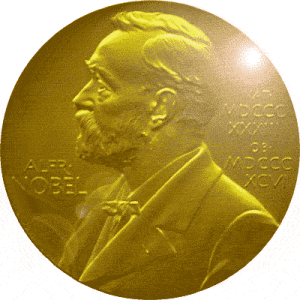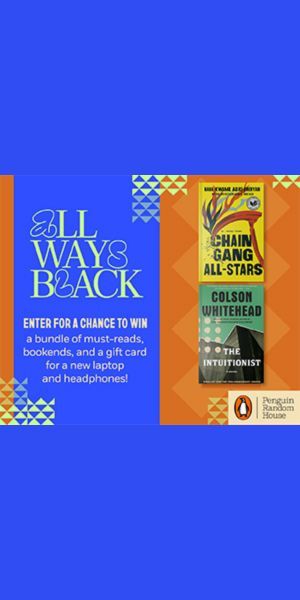
Does the Nobel Prize Do a Disservice To Readers?
Recently, I read an article on Flavorwire about being trolled by the Swedish Academy. While I thought the article itself had inherent biases, what mostly caught my attention was the comments. Comments on the piece seemed somewhat combative (as often happens on the Internet). I found that I didn’t agree with any single party, but when I stepped back from the situation I asked myself an important question:
Does the Nobel Prize for Literature inherently disadvantage readers?
Indirectly, Jeff O’Neal touches on this in a piece he wrote for Book Riot about considering J.K. Rowling as a Nobel Prize candidate. The very notion will make some readers uneasy, but that is exactly the reason for my inquiry.
The Nobel, along with many other literary prizes, is held to a certain degree of accountability in distinguishing what books have significant literary merit. Immediately, readers worldwide are faced with questions when the Nobel winner for literature is announced. Do I know this writer? Do I consider his or her work influential? Does this writer have context within my country? Is he or she truly literary? Do I have any of this writer’s works in my library? Etc.
However, the divide this creates can be unintentionally pernicious. In the case of the Flavorwire article I mentioned earlier, readers immediately delved into issues on national identity. Patrick Modiano is not necessarily well known in the U.S. (yet) and those commenting quickly found this to be a point of contention. Walls were raised in haste. The stereotypes of American superficiality and French snobbery quickly became focal points. Of course, it’s worth noting that this is my biased interpretation based on a total of 4 or 5 comments.
Yet, this got me thinking about the Nobel Prize for Literature in a way I hadn’t considered before. Once a year, this award sends many readers into a panic, making them feel as if they have to go quickly read an author’s entire bibliography. The question of what defines “literary” work is instantly revived. The Academy’s decision is met with praise or disdain depending on who you talk to, and much discussion revolves around a writer’s accomplishments. This is where Jeff’s argument for J.K. Rowling is important, because, if nothing else, she has sold millions of books. She has made millions of young readers passionate both about books and writing their own stories, and literary or not, that should mean something.
In the case of Rowling, I can’t imagine she gives too many fucks, if any. The omnipresence of her work speaks for itself. There are, of course, more literary examples of writers with this type of international reach (Haruki Murakami immediately comes to mind). But, overall, the Academy is tasked with choosing one writer in the whole world to win this prize each year, and suddenly that writer’s work has to meet the expectations of that accolade. Popular writers immediately get written off for not having heady, pedantic tendencies, and writers that stay within the canon and are little known are sometimes seemingly chosen to keep the prize upheld to some highbrow standard.
In the meantime, this whole decision-making process really fucks with readers, and I would imagine writers as well. For example, I had never heard of Modiano before he won the Nobel, and that made me question my knowledge of writers from other countries. However, it seems a nearly impossible task for a writer to be ubiquitous in every nation. There are often notes in books mentioning if an author has been translated into many different languages, and I have to wonder if that goes into account when the Academy makes their selection.
To sum up so far, the Nobel potentially divides readers along the lines of literary merit and general worldliness.
Then there’s the issue of diversity.
At a time where the publishing industry, specifically in the U.S., is making a point of emphasizing diversity, the Nobel Prize has historically lacked it. The homepage on the Nobel Prize for Literature website practically broadcasts it. Under the website’s “Did You Know?” section, it states that of the 107 Nobel Prizes for literature awarded, only 13 have been women. There are actually 111 Nobel laureates due to several years in which the award was split between two people. 13/111 = 11.7 percent. Plain and simple.
The Swedish Academy has also historically been chastised for favoring Europeans. This is something the organization publicly claimed it was working to fix as far back as 1984, but it’s still too early to tell whether or not the prize will ever see a balanced distribution across the globe. I cannot speak to quality or popularity of Modiano’s writing, for I have never read any of his work. What I can say, however, is that French language writers have won 14 Nobel Prizes for Literature, coming in second only to English language writers. This year, like many others, I was hoping for Murakami to win, and in the context of this discussion, Japanese language writers only have 2 Nobels to date. Does this make one better than the other? Absolutely not. But if the Academy truly wishes to emphasize writers from all countries, this should have been considered.
Furthermore, there are only three black Nobel laureates for literature, the first black winner being Wole Soyinka. He was awarded the prize in 1986. The other two are Derek Walcott and Toni Morrsion, who were awarded in 1992 and 1993, respectively. That’s 2.7 percent of all Nobel laureates.
Now, diversity in the U.S. publishing industry has been a big discussion as of late. The Nobel Prize falls outside of that context, as it is not an American prize. It is not strictly a Swedish prize, either. Nor a European prize. Putting the literary merit of one individual above all others is a high stakes game for readers, as it illuminates tendencies in bookish culture that can be isolating or elitist. Therefore, the Swedish Academy, as well as readers worldwide, need to begin approaching the Nobel Prize for Literature with a new set of questions. While the nature of the prize makes it impossible to completely erase the pretentious literary standard, there has to be more open-mindedness to literature that falls outside of the traditionally myopic canon.














